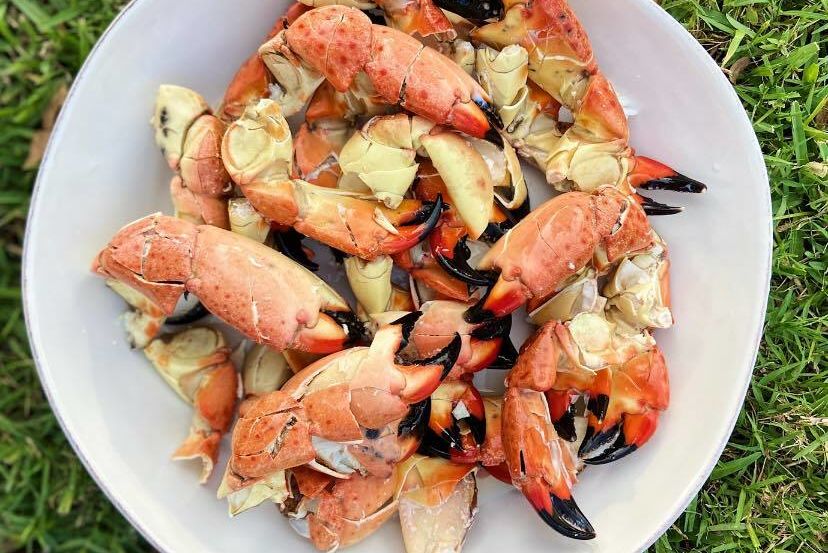Don't Want to Feel Like Stuffed Turkey After Thanksgiving? Follow These Tips

Image: Kari Perrin
It’s become a Thanksgiving tradition to eat yourself into a coma. Then, when our bellies are full of carbs and regret, we ask why we do this to ourselves every year.
However, this year—with the help of Sarasota Memorial Hospital registered dietician Michelle James—we're giving you some Thanksgiving nutritional tricks to avoid, or at least temper, the pain of that ritualized gluttony.
But first, why does Thanksgiving dinner have this effect on our bodies?
People will say it’s the L-tryptophan in the turkey we eat that makes us sleepy. While the amino acid found in high levels in turkey does make us tired, the addition of protein counteracts the the effect. What makes us tired is the amount and the kind of food we eat for the holiday.
Most Thanksgiving food has a high glycemic index. Glycemic index is a measurement of how quickly food causes our blood sugar to rise. Highly processed carbohydrates tend to have the highest index. White bread, for instance has a glycemic index of 100, while non-starchy vegetables like asparagus are on the low end of the spectrum, with a glycemic index of 15. When your blood sugar spikes, you can expect the inevitable crash. “Over eating anything makes people sleepy,” James says. “The sleepy part is from the crash from the blood sugar. It will also make you cranky or extremely hungry.”
So how can we avoid that crash?
Reheat your carbs
Since carbohydrates are the biggest glycemic index culprit. One trick to reducing the glycemic index is to cool down your carbs before you eat them. “The process of cooking releases the starches in the food,” James says. “If you do cool your food in the refrigerator first and reheat it later, it actually causes the starch to be bypassed by the small intestine.” The small intestine is where virtually all nutrients are absorbed in the bloodstream.
When you cool down starch, you're changing the molecular structure of the food so that a percentage of it becomes indigestible by the small intestine. Instead, it heads to the large intestine.
“The large intestine contains bacteria that will eat the starches that bypassed the small intestine,” James says. This will reduce the amount of blood sugar released into the body.
“Consider cooking your starchy vegetables ahead and heating them back up on Thanksgiving Day,” James says. But heads up: this trick only works for starches like potatoes and rice. Your macaroni and cheese does not apply.
Leave the skin on your veggies
You might want your mashed potatoes as pure as the driven snow, but removing the skin also removes the fiber and contributes to your Thanksgiving crash.
“You want to have a less processed item,” James says. Additional fiber slows the rate of glucose absorption. Another pro tip: fill up your plate with more leafy greens than stuffing.
Exercise before and after
“A good way to avoid the crash is to do one of those Thanksgiving Turkey Trots,” James says. When you exercise, you deplete your glycogen—that is, the stored glucose in our muscles and liver that's used for energy.
If you use that stockpiled energy, your body takes your Thanksgiving meal and uses those nutrients to replenish its stores. James says it's helpful if you don’t lie down on the couch right after you eat, either. “Move around! Help your body use all the energy it just ate,” James says. “Do the dishes and go outside with the kids.”
Don’t look down
James says you should also keep your head tilted up after a big meal. “It will tell your brain, ‘Hey, we don’t want to go into that sleep mode just yet,'” she explains.
Don’t distract yourself
The communication between the stomach and the brain is a very slow, hormonal process. By the time your stomach tells your brain it’s full, you might have already stretched your stomach beyond its original capacity. James says you can avoid this by not being completely distracted while you eat.
This is a tough ask, because Thanksgiving is one of the more social meals of the year, so you might be engrossed in a conversation without realizing how much you are eating.
“Spend at least an hour eating,” James advises. “Slow down and really chew your food and enjoy what you are eating.” If you overeat today, you are more likely to overeat tomorrow. “The stomach is a stretchy organ,” she explains.



